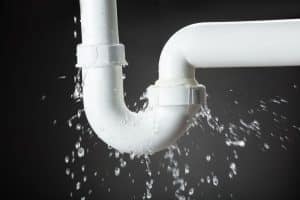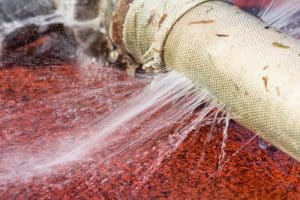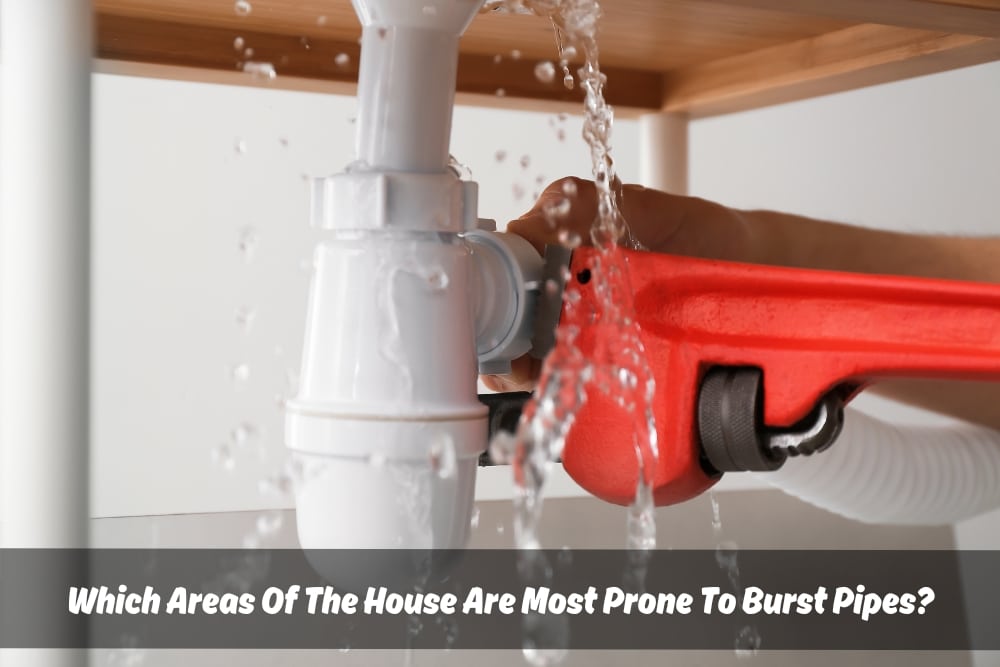A burst water pipe in house is not what anybody would call a fun event. Consider the moment (and pun intended) when you find a small fountain coming out from under your kitchen sink. As expected, not the day you had in mind. The fact is, burst pipes can happen anywhere in the house, but these places are like a huge neon sign that indicates a plumbing problem. Knowing about the danger zones will help you be a plumbing superhero and prevent watery catastrophes.
Can cold temperatures cause a burst water pipe in your house?
Water expands when it freezes, and this can put a lot of pressure on pipes which may result in their breaking or bursting. This is why a burst pipe is a nightmare during winter, particularly in the areas that have those numbing cold spells.
These are the areas where freezing temperatures love to target your pipes:
- Attics: If your attic is about as insulated as a tea strainer, any pipes running through there are at risk of freezing, especially during long stretches of cold weather.
- Basements and crawlspaces: Same story! Unheated basements and crawlspaces can let chilly air reach your pipes, making them prime candidates for bursting.
- Exterior walls: Pipes that snake through outside walls, particularly on the north side of your house (because, hello, less sunshine!), are more likely to feel the freeze.
- Garages: Garages, especially those without heating, can put exposed water supply lines in harm’s way.
Top Tip: When the cold rolls in, crack open those cabinets under your sinks a bit. This lets warm air circulate around the pipes and helps keep them from freezing.
Are your pipes safe in the kitchen and bathroom?
Your kitchen and bathroom are the water warriors in your home, but that doesn’t mean they are not prone to burst water pipes.
Here’s what to keep an eye on:
- Under-sink pipes: The area under your kitchen and bathroom sinks is a maze of pipes leading to your taps and appliances bringing the water. Tight spaces and not much air circulation can make these pipes vulnerable to freezing, especially if you keep those cabinets shut tight during winter.
- Behind appliances: Pipes that are hidden behind dishwashers, washing machines, or fridges also can experience the same fate. You need to ensure that the appliances are far enough apart so that air can freely circulate.

How to fight back:
- Wrap those exposed pipes under sinks and behind appliances with cosy pipe insulation sleeves.
- Disconnect your garden hoses before winter so they don’t freeze and put pressure on the shut-off valve inside.
- During super cold weather, keep a faucet dripping slowly – this tiny stream keeps the water moving and prevents freezing.
Should you worry about a burst water pipe in the garage?
If your garage has a dedicated water line for washing your car or nurturing your garden, then yeah, burst pipes are a potential problem. Garages are often unheated, making exposed pipes sitting ducks for freezing.
Winterise your garage like a boss:
- Drain and disconnect your garden hoses before winter arrives.
- Give those exposed pipes in your garage some love with pipe insulation sleeves.
- Give those exposed pipes in your garage some love with pipe insulation sleeves. And if you encounter a burst pipe, assess the situation promptly to minimize damage.
Can everyday activities cause burst pipes?
Believe it or not, some everyday things can increase your risk of a burst pipe:
- Oops, you wrecked a pipe!: Renovations, hanging shelves, or drilling holes in walls can accidentally damage hidden pipes. Be super careful when working around areas where pipes might be lurking.
- Ignoring the small stuff: A little leak today can turn into a major gusher tomorrow. Don’t ignore even those seemingly minor leaks. Address them quickly to avoid a bigger problem down the track.
How can you prevent a burst water pipe in your house?
Taking some proactive steps can seriously reduce the risk of a burst pipe in your house:

- Insulate those vulnerable areas: Install modern insulation products, which include pipe insulation sleeves around exposed pipes (such as attics, crawlspaces, basements and outside walls).
- Water pressure matters: Great water pressure sets the structure of pipes at a higher risk. This can lead to quick bursts or cracks in pipes. Examine your water pressure regulator and fix it if it is not operational. If you are not sure about it, refer to your owner’s manual or call a plumber.
- Know your shut-off valve: In the case of a burst pipe, halting the water supply right away would help prevent water damage to a large extent. Locate your home’s main water shut-off valve and make sure every household member knows where it’s placed.
Become a plumbing superhero!
With these steps and the habit of being on alert, you will most definitely become a plumbing superhero who will not let a burst pipe wreck your house. Keep in mind though that the superheroes still need help sometimes. Have no worries at Apex Plumbing Services; our concern is to assist you with your pipe maintenance.
Here’s what Apex Plumbing Services can do for you:
- Winterisation: Our master plumbers may evaluate your home’s current plumbing system and suggest the best winterisation techniques, such as pipe insulation, hose draining, and checking shut-off valves.
- Leak detection and repair: We employ the most advanced methods and equipment to discover all types of even difficult leaks and fix them fast and professionally.
- Burst pipe repair: If things go from bad to worse and a pipe bursts, Apex Plumbing Services is always on alert, any time, to get the water supply back to your system and minimise water damage.
- Preventative maintenance: The regular pipe checks are exactly equal with this shield! Our plumbers may find out which problems will probably be the most serious.
Waiting to see a plumbing emergency never pays off! Contact us today for a free quote and reassurance that your pipes are taken care of. We are your trusted local wet pipe prevention technicians and are ready to stop water from damaging your home every day.


